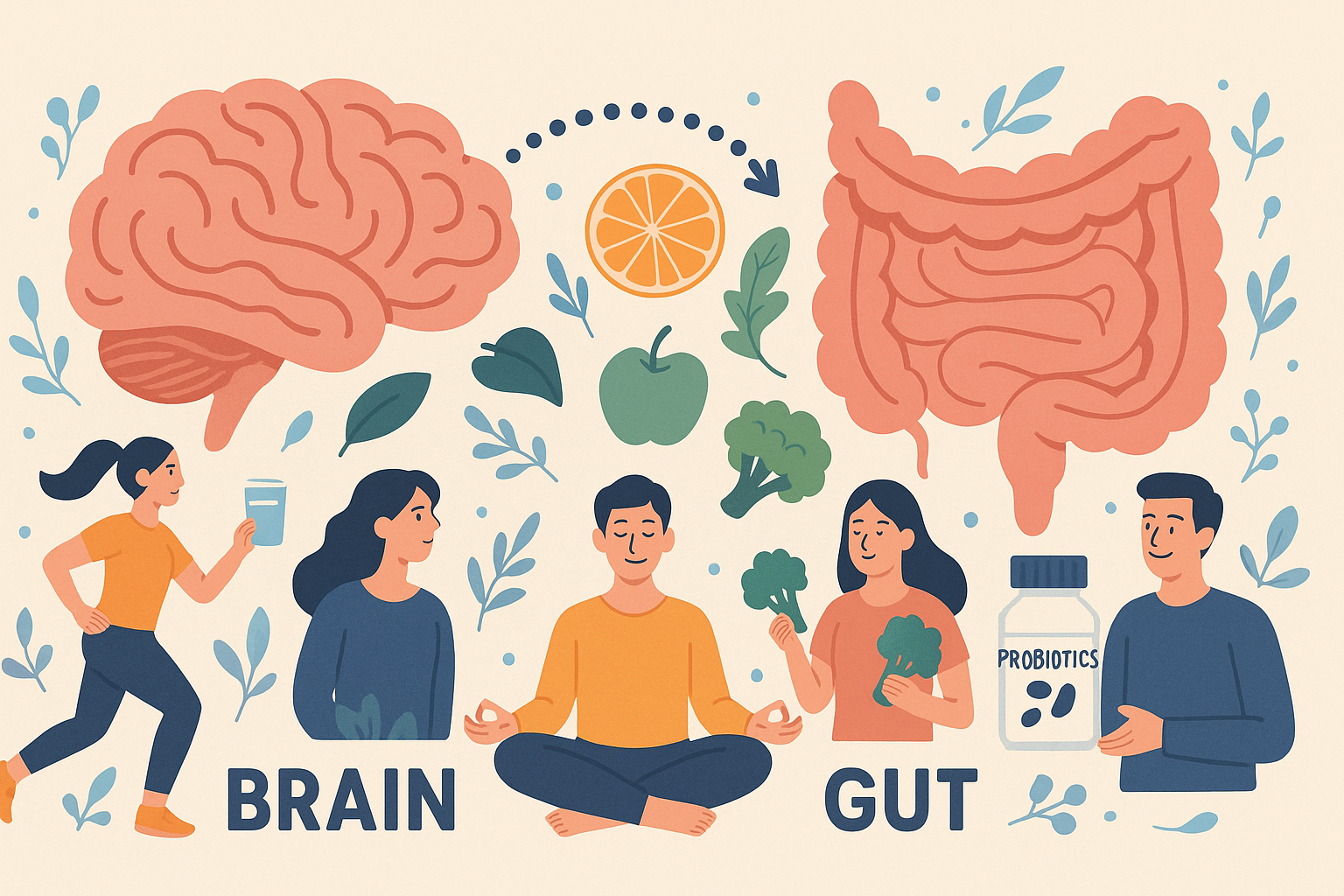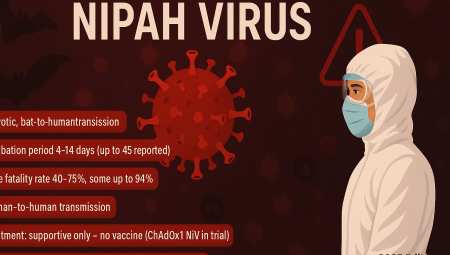How to Naturally Support Your Gut-Brain Connection: 10 Proven Strategies Backed by Science
The gut-brain connection has become a hot topic in both scientific research and holistic health circles. Once seen as two separate systems, your gut and brain are now understood to be intricately linked through a complex network known as the gut-brain axis. This article takes a deep dive into this fascinating relationship and explores over a dozen natural strategies — backed by science — to support this powerful biological connection.
What Is the Gut-Brain Connection?
The gut-brain connection refers to the two-way communication between your gastrointestinal system and your central nervous system. This network includes the vagus nerve, neurotransmitters, the immune system, hormones, and most significantly, the gut microbiome — the vast ecosystem of microbes that live in your intestines.
The Science Behind It
Scientists now refer to the gut as the “second brain” due to its 100 million neurons and its ability to produce neurotransmitters like serotonin, dopamine, and GABA. Remarkably, 90% of serotonin — the mood-boosting chemical — is made in the gut. The gut and brain send signals to each other constantly, and this connection affects everything from mood and memory to immune response and digestion.
Why Strengthening the Gut-Brain Axis Matters
- Mental Health: Poor gut health has been linked to anxiety, depression, and mood disorders.
- Cognitive Function: A balanced gut microbiome can improve focus, clarity, and memory.
- Immune Health: The gut houses about 70% of your immune system.
- Digestive Wellness: Strong communication supports efficient digestion and nutrient absorption.
- Hormonal Balance: Gut bacteria influence hormones like estrogen, insulin, and cortisol.
10 Natural Strategies to Improve Your Gut-Brain Connection
1. Eat More Fermented Foods
Fermented foods contain probiotics — live beneficial bacteria that support gut health. Examples include:
- Yogurt (with live cultures)
- Kefir
- Sauerkraut
- Kimchi
- Miso
- Tempeh
How they help: These foods increase microbial diversity, reduce inflammation, and support serotonin production.
2. Incorporate Prebiotic-Rich Foods
Prebiotics are non-digestible fibers that fuel good bacteria. Top sources include:
- Garlic
- Onions
- Leeks
- Asparagus
- Bananas
- Chicory root
- Jerusalem artichokes
Pro Tip: Combine prebiotics with probiotics (synbiotics) for a powerful gut boost.
3. Stay Properly Hydrated
Water is essential for transporting nutrients, regulating body temperature, and maintaining mucosal linings in your intestines.
Bonus Tip: Try herbal infusions like ginger or fennel tea to support both hydration and digestion.
4. Practice Mindful Eating
Eating slowly and without distraction enhances digestion and supports the parasympathetic nervous system. This improves communication between the gut and the brain.
Try This: Chew each bite at least 20 times, and avoid screens during meals.
5. Manage Stress Effectively
Chronic stress leads to gut dysbiosis (an imbalance in gut bacteria), inflammation, and leaky gut. Natural methods to reduce stress include:
- Meditation
- Breathwork
- Journaling
- Time in nature
- Laughter therapy
- Sound baths
6. Get Consistent, Moderate Exercise
Movement stimulates the release of endorphins and enhances gut motility and microbiota diversity. Ideal exercises include:
- Brisk walking
- Yoga
- Pilates
- Tai Chi
- Swimming
Scientific Insight: A 2018 study in Frontiers in Neuroscience found that exercise alters the composition of the microbiome, improving mood and stress resilience.
7. Prioritize Quality Sleep
Gut bacteria follow a circadian rhythm. Disrupted sleep affects gut flora and leads to hormonal imbalance.
Tips for Sleep Optimization:
- Limit screens an hour before bed
- Keep a consistent bedtime routine
- Try magnesium supplements
- Avoid caffeine after 2 PM
8. Eliminate or Reduce Ultra-Processed Foods
Foods high in sugar, emulsifiers, and artificial ingredients feed harmful gut bacteria and may increase intestinal permeability (aka “leaky gut”).
Instead, eat:
- Whole grains
- Leafy greens
- Wild-caught fish
- Grass-fed meats
- Healthy fats (olive oil, avocado)
9. Consider Gut-Healing Herbal Support
Herbs play a crucial role in digestion and neurological health. Helpful options include:
- Ginger: Anti-inflammatory and great for nausea
- Peppermint: Eases gut spasms and bloating
- Chamomile: Calming for both gut and nerves
- Turmeric: Contains curcumin, known to reduce gut inflammation
10. Use Targeted Supplements Wisely
Supplements can be beneficial when food alone isn’t enough. Common options:
- Probiotics (multi-strain, CFU 10 billion+)
- Prebiotic fibers (like inulin or FOS)
- L-Glutamine: Heals gut lining
- Omega-3 fatty acids: Brain and gut anti-inflammatory support
Caution: Always consult with a healthcare provider before starting new supplements.
The Role of Short-Chain Fatty Acids (SCFAs) in Brain Function
Short-chain fatty acids like butyrate, acetate, and propionate are produced when gut bacteria ferment fiber. These SCFAs:
- Nourish gut cells
- Reduce inflammation
- Support the blood-brain barrier
- Influence neurotransmitter production
A high-fiber diet is the best way to naturally increase SCFAs.
Leaky Gut Syndrome and Mental Health
When the gut lining becomes overly permeable, it allows toxins and bacteria to enter the bloodstream — a condition known as leaky gut. This can lead to:
- Brain fog
- Fatigue
- Irritability
- Mood disorders
Supporting gut lining integrity with glutamine, zinc, collagen, and bone broth is crucial.
Can Gut Health Influence ADHD and Autism?
Emerging research suggests a connection between gut microbiota and neurodevelopmental disorders like ADHD and autism. Studies have shown that individuals with these conditions often have distinct gut flora profiles.
Improving gut health through diet and probiotics may reduce certain symptoms, although more research is needed.
Gut Health and Aging
As we age, microbial diversity often decreases. This decline is linked to:
- Increased inflammation
- Cognitive decline
- Weakened immunity
To support gut-brain health in older adults:
- Increase dietary fiber
- Consume fermented foods
- Stay active mentally and physically
Probiotics vs Psychobiotics: What’s the Difference?
- Probiotics are general beneficial bacteria.
- Psychobiotics are a class of probiotics shown to improve mental health.
Examples include:
- Lactobacillus helveticus R0052
- Bifidobacterium longum R0175
These strains influence GABA and serotonin levels.
What are the best ways to naturally support your gut-brain connection?
The best natural ways to support your gut-brain connection include eating fermented and prebiotic-rich foods, reducing stress through mindfulness and exercise, getting quality sleep, and avoiding processed foods. These habits help balance gut bacteria and enhance communication between the gut and brain.
Pro Tips from Gut Health Experts
- Cycle your probiotics every 3 months to promote diversity.
- Eat the rainbow: Diversity in plant foods equals diversity in gut microbes.
- Fast intermittently: Time-restricted eating supports gut repair.
- Incorporate bone broth regularly to nourish the gut lining.
- Reduce alcohol: Even moderate drinking impacts gut flora.
- Track your triggers: Some people react negatively to FODMAPs or gluten.
- Prioritize mental rest: Overstimulation can harm the nervous system.
- Engage in play or creative hobbies: These reduce stress and support the vagus nerve.
- Try adaptogens: Ashwagandha and Rhodiola can balance the stress response.
- Limit antibiotics: Only use when absolutely necessary to preserve gut balance.
Frequently Asked Questions (FAQ)
What foods harm the gut-brain connection?
Processed foods, trans fats, high-fructose corn syrup, artificial sweeteners, and alcohol can disrupt the gut barrier and microbiome, negatively impacting mood and mental clarity.
Can improving gut health reduce anxiety?
Yes. A growing body of research shows that improving gut flora with probiotics and dietary changes can lower anxiety and depression symptoms through the gut-brain axis.
How soon can I see changes?
You may notice improvements in digestion and mood within 2 to 4 weeks, though some benefits take several months.
Are there specific strains of probiotics for mental health?
Yes. Lactobacillus rhamnosus, L. helveticus, and Bifidobacterium longum have shown benefits in reducing stress and anxiety.
Is coffee bad for the gut-brain axis?
Moderate coffee can be beneficial due to polyphenols, but excessive caffeine can irritate the gut and disrupt sleep — indirectly harming gut-brain harmony.
Do antibiotics destroy all gut bacteria?
Not all, but many beneficial strains are reduced. Always take probiotics and eat fiber-rich foods after antibiotics.
Can children benefit from gut-brain optimization?
Absolutely. Developing a healthy gut early helps prevent mood, immune, and digestive issues later in life.
Do gut health issues contribute to brain fog?
Yes. Leaky gut and microbial imbalance are common causes of brain fog, fatigue, and poor memory.
What’s the best diet for gut-brain health?
A Mediterranean-style diet rich in fiber, healthy fats, lean proteins, and polyphenols is ideal.
Can I improve gut-brain health without supplements?
Yes, with a diverse diet, regular movement, good sleep, stress reduction, and fermented foods.
Final Thoughts
Understanding and supporting the gut-brain connection is a transformative step toward holistic well-being. By implementing the strategies shared here — from nutrition to mindfulness to sleep hygiene — you’re taking charge of both your mental and physical health.
Have you tried any gut-boosting routines that improved your mood or mental clarity? Share your experience in the comments below — your insight could be a game-changer for someone else!



